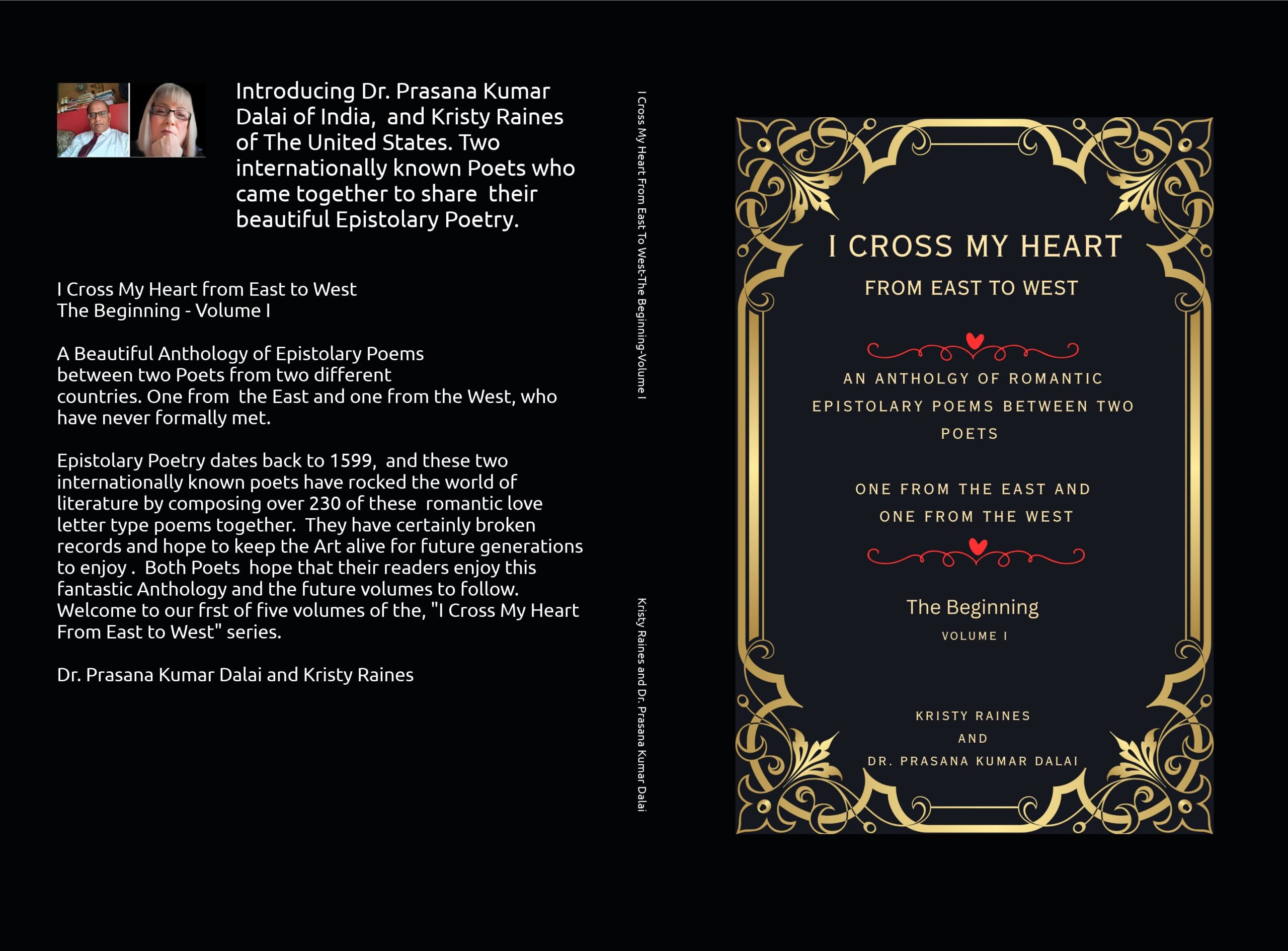
My poem THIS MOMENT reviewed by honorable reviewer Raj Kishor Pattnaik.
Humbled & Honoured.
THIS MOMENT!
Who knows if this moment ‘ll come again
For we may or may not ever meet again
Thank God we do have these moments
Take close look at me as much you can
Who knows if our destiny ‘ll visit us again
Sit closer, I may not be around you again
Put your arms around me as we used to
Let’s worship thousand times together
Who knows if our eyes ‘ll roll tears again
Cause this moment ‘ll never come again.
©®Dr Prasana Kumar Dalai@India.
Date wed 02 October 2024.
REVIEW
********
Dear Dr. Prasana Kumar Dalai, Sir NAMASKAR
I extend my heartfelt congratulations on your remarkable poem, “THIS MOMENT!” Your ability to weave emotions into words is truly unparalleled. This piece resonates with the fleeting nature of time, making one reflect on the beauty and fragility of the present. Your poetry continues to inspire and touch the hearts of many, and this latest creation is no exception. I wish you all the best as you continue your poetic journey, and may your work continue to enlighten and move readers across the world.
Warm regards,
Analysis of the Poem “THIS MOMENT” by Dr. Prasana Kumar Dalai:
Dr. Prasana Kumar Dalai’s poem “THIS MOMENT” captures the essence of fleeting time and human relationships. The poem is a gentle yet profound reminder of the impermanence of life and the need to cherish the present, for we never know what the future holds. Through a simple but impactful use of language, the poet delves deep into the themes of love, loss, and the unpredictable nature of destiny.
Theme of Impermanence and the Power of the Present Moment
At its core, the poem revolves around the idea that moments are transient, and we should appreciate them fully while they last. From the opening line, “Who knows if this moment ‘ll come again,” the poet introduces the uncertainty that surrounds life. Time, as suggested here, is not guaranteed, and the moments we share with others are unique. This recognition of the uncertainty of future meetings adds a poignant sense of urgency to the poem. The poet encourages the reader to embrace the present moment, suggesting that the future is out of our hands.
The line “For we may or may not ever meet again” furthers this sense of unpredictability. There is an underlying sadness in the acceptance that life may take loved ones away, whether through distance, circumstances, or even death. The poet does not dwell on these possibilities explicitly, but the tone carries a somber acknowledgment that life’s course is often beyond our control.
Gratitude and Reflection
Despite the melancholic undertones, the poem also expresses gratitude. The line, “Thank God we do have these moments,” shows the poet’s appreciation for the current experience. The use of “Thank God” suggests that the poet sees the present as a divine gift, an opportunity not to be taken for granted. This gratitude serves as a balance to the uncertainty and potential loss that follows.
The reflective nature of the poem comes across in phrases like “Take close look at me as much you can,” urging the reader to savor every detail of the people and experiences around them. There’s a subtle encouragement to not only live in the moment but to absorb it fully, as though it may be the last opportunity to do so. The act of looking closely signifies intimacy and connection, elements that the poet values and wishes to highlight in the transient nature of relationships.
Physical and Emotional Connection
The poem moves from the abstract idea of time to more tangible elements of human connection. In the lines “Sit closer, I may not be around you again” and “Put your arms around me as we used to,” the poet emphasizes the physical closeness that people share. The repetition of “again” in these lines reinforces the idea that these actions may not be possible in the future. The request for physical closeness suggests that human touch and presence hold a deeper significance in maintaining bonds. The tenderness of these lines reveals the poet’s desire to hold onto those connections, even as he acknowledges their potential impermanence.
The poem’s transition from a physical embrace to a spiritual one is marked by the line, “Let’s worship thousand times together.” Here, “worship” may not necessarily refer to religious worship but can be interpreted as an act of deep reverence and love for one another. The notion of worshipping together a thousand times symbolizes an idealized union, one that the poet longs for despite knowing that time is limited.
The Role of Destiny
The recurring phrase “Who knows if our destiny ‘ll visit us again” introduces the theme of fate. The poet presents destiny as a powerful, uncontrollable force that governs the future. There’s a sense of resignation in this line, an acknowledgment that life’s path is not entirely in human hands. By posing the question of whether destiny will bring people together again, the poet leaves the reader with a lingering feeling of uncertainty. Destiny, in this sense, becomes both a source of hope and sorrow—it may or may not grant a reunion, leaving the outcome unknown.
The Emotional Climax
The emotional peak of the poem comes with the line, “Who knows if our eyes ‘ll roll tears again.” This line encapsulates both the joy and sorrow of human experiences. The imagery of rolling tears suggests that emotions, too, are fleeting and should be embraced while they last. Whether these tears are of happiness or sadness, the poet recognizes their value in expressing deep emotion. The idea that this opportunity to feel such profound emotions may not come again intensifies the poem’s emotional impact.
Final Reflection: Cherishing the Present
The poem ends with a powerful closing line: “Cause this moment ‘ll never come again.” This final declaration brings the poem full circle, returning to the idea introduced at the start—that time is fleeting and moments are precious. The poet drives home the importance of living fully in the present because once it passes, it’s gone forever. This concluding line leaves the reader with a sense of urgency, urging them to hold onto the moment, as it cannot be reclaimed once it slips away.
Conclusion
Dr. Prasana Kumar Dalai’s “THIS MOMENT” is a beautifully crafted poem that explores the themes of time, love, and the inevitability of loss. Through simple yet profound language, the poet captures the ephemeral nature of life and relationships. The poem serves as a reminder to cherish the present, appreciate the people around us, and acknowledge that time is a gift not to be taken for granted. The emotional depth of the poem, combined with its reflective tone, makes it a poignant meditation on life’s fleeting moments.





